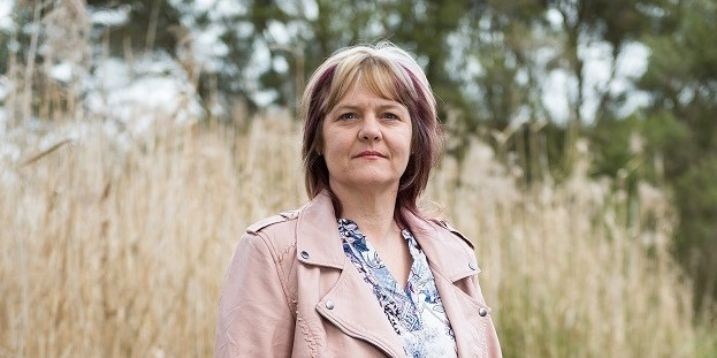
Mary Reynolds has been a hospital and general practice nurse for over 30 years – or as Mary puts it, she’s been a nurse “forever”.
Mary’s time as a nurse in a neonatal intensive care unit helped her to understand the difficult decisions that families and health professionals can face when caring for loved ones.
These experiences helped shape Mary’s outlook on end-of-life matters, but it was the sudden death of her husband in 2012 that was most influential in her decision to become an advance care planning advocate.
A few years after her husband’s death, Mary completed an advance care planning workshop and has since become a trained advance care planning facilitator. As a general practice nurse and educator with Primary Health Networks (PHN), Mary teaches general practitioners and nurses about care coordination, chronic disease management and advance care planning.
Mary had her first personal experience with advance care planning when her husband collapsed at work. “I got a phone call at about 1.30 pm to say there had been an incident and I needed to get to the hospital as quickly as possible.” On arrival, Mary was told that resuscitation had established a heartbeat, but her husband’s brain function was likely to be minimal.
While the time spent alongside her husband in intensive care was emotionally trying, Mary was confident about the decisions she made on behalf of her husband. “I knew he didn’t want to be anyone’s responsibility. He enjoyed the fact his brain could solve problems, and the reality was he was never going to be able to do that again. Letting him die was difficult, but I know he would have been very happy with the choices I made on his behalf.”
Mary’s choices were based on many conversations over time, rather than any formalised documentation. She recalls one particular discussion on the way home from visiting a sick friend, when her husband said: “If I ever have to divide my life up into taking my pills around my food, it’s not worth it. If I need that many pills to stay alive, then I don’t want to be alive anymore.”
Another time, they were discussing the wishes of a family friend with declining health, who had expressed an interest in donating their body to science. According to Mary: “It wasn’t for my husband, but he was also adamant about not sitting around waiting to die. His dad died quite suddenly after gardening and he’d always said that if he had ‘to go’, that’s the way he wanted to do it.”
While making decisions, Mary was surprised to learn that her husband’s family was unaware of his wishes. “He was one of six children and none of them had any idea what he wanted.”
Ultimately, the family was very supportive, but this experience made Mary consider the additional difficulties she might have faced – both with family and hospital staff – had she also been unaware of her husband’s wishes.
Similarly, Mary was prompted to consider who would be the best person to make these kinds of decisions for her, should the need ever arise. “I’ve given the task to my youngest son because he’s quite pragmatic and understands medical language. We haven’t formally lodged the paperwork, but I’ve written down my wishes, and he knows where to find the documents.”
End-of-life decisions can default to the oldest child, so Mary often shares her own circumstances to encourage patients to carefully consider their choice of substitute decision-maker.
For those involved in advance care planning, Mary offers the following advice: “Keep trying! Don’t run away from it because it makes you feel uncomfortable; the more you do it, the more comfortable you’ll feel. Everyone deserves that respect – to choose who makes those decisions, and the sorts of decisions they might be making. It’s their body, and their life, so it really should be their choice.”
* Names and personal details have been changed for privacy reasons.